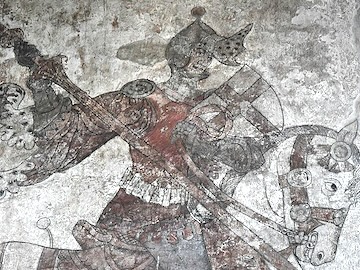English Literacy Inspired by the Vision of NL Clay
Clay Lane is a website for people who care deeply about the language and heritage of the English people, and who want to know more about them because they understand how important these things are for our future. It is inspired by textbooks written by Yorkshire schoolmaster NL Clay, and used in English schools and homes from the 1920s to the 1960s. Clay Lane is ideal for those who prefer traditional methods, traditional content, and the option of one-to-one human contact.
Read famous (and not so famous) passages from history, legend, biography, politics, poetry and fiction, and try your hand at exercises similar to those Clay gave to pupils in secondary schools before the educational changes of the 1960s. Use what you find here to improve your command of good, clear, correctly spelled and punctuated English, or just browse for pleasure.
Everything on Clay Lane is free to use. Share your creativity with me, and if you’d like a little help, just ask. See Email Support.
“The course should train pupils to observe, learn more of the world they live in, think clearly, use the imagination and to speak clearly.”
NL Clay, Think and Speak (1929)
Featured Post
From The Rochdale Pioneers
One Sunday a very earnest, well-informed man, called Charles Howarth, came to the meeting with a beaming face, and told them he had thought of a way of improving their condition. They were all eagerness to hear it, but when he suggested opening a shop, and buying goods wholesale and selling them retail to each other, they shook their heads.
Read
Featured Exercise
Homophones Find in Think and Speak
In each group below, you will find words that sound the same, but differ in spelling and also in meaning. Compose your own sentences to bring out the differences between them.












